Books by Fellows
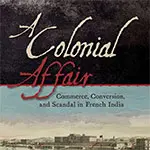
Danna Agmon’s gripping microhistory is a vivid guide to the “Nayiniyappa Affair” in the French colony of Pondicherry, India. The surprising and shifting fates of Nayiniyappa and his family form the basis of this story of global mobilization, which is replete with merchants, missionaries, local brokers, government administrators, and even the French royal family.

A Global Enlightenment traces an overlooked exchange between China and the West to make compelling claims about the history of progress, notions of European exceptionalism, and European engagement with Chinese science. To tell this story, Alexander Statman focuses on a group of thinkers he terms “orphans of the Enlightenment,” intellectuals who embraced many of their contemporaries’ ideals but valued ancient wisdom.

To seek sanctuary from persecution by entering a sacred space is an act of desperation, but also a symbolic endeavor: fugitives invoke divine presence to reach a precarious safe haven that imbues their lives with religious, social, or political significance. In medieval England, sanctuary was upheld under both canon and common law, and up to five hundred people sought sanctuary every year. What they found, however, was not so much a static refuge as a temporary respite from further action—confession and exile—or from further violence—jurisdictional conflict, harrying or starvation, a breaching of the sanctuary.
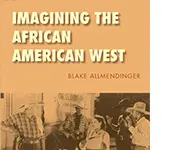
The literature of the African American West is the last racial discourse of the region that remains unexplored. Blake Allmendinger addresses this void in literary and cultural studies with Imagining the African American West—the first comprehensive study of African American literature on the early frontier and in the modern urban American West.
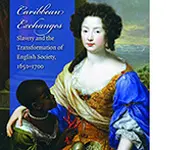
English colonial expansion in the Caribbean was more than a matter of migration and trade. It was also a source of social and cultural change within England. Finding evidence of cultural exchange between England and the Caribbean as early as the seventeenth century, Susan Dwyer Amussen uncovers the learned practice of slaveholding.
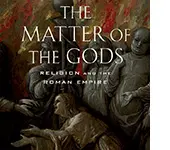
What did the Romans know about their gods? Why did they perform the rituals of their religion, and what motivated them to change those rituals? To these questions Clifford Ando proposes simple answers: In contrast to ancient Christians, who had faith, Romans had knowledge, and their knowledge was empirical in orientation.

A highly original history, tracing the least understood and most intractable form of organized human aggression from Ancient Rome through the centuries to the present day.
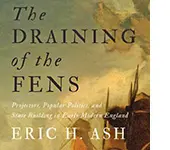
The draining of the Fens in eastern England was one of the largest engineering projects in seventeenth-century Europe. A series of Dutch and English "projectors," working over several decades and with the full support of the Crown, transformed hundreds of thousands of acres of putatively barren wetlands into dry, arable farmland.
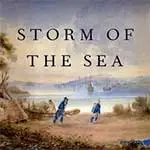
Narratives of cultural encounter in colonial North America often contrast traditional Indian coastal-dwellers and intrepid European seafarers. In Storm of the Sea, Matthew R. Bahar instead tells the forgotten history of Indian pirates hijacking European sailing ships on the rough waters of the north Atlantic and of an Indian navy pressing British seamen into its ranks.
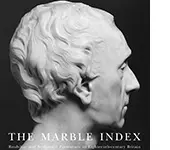
Providing the first thorough study of sculptural portraiture in 18th-century Britain, this important book challenges both the idea that portrait necessarily implies painting and the assumption that Enlightenment thought is manifest chiefly in French art. By considering the bust and the statue as genres, Malcolm Baker, a leading sculpture scholar, addresses the question of how these seemingly traditional images developed into ambitious forms of representation within a culture in which many core concepts of modernity were being formed.
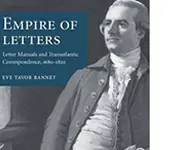
Among the most frequently reprinted books of the long eighteenth century, English, Scottish and American letter manuals spread norms of polite conduct and communication, which helped to connect and unify different regions of the British Atlantic world, even as they fostered and helped to create very different local and regional cultures and values.

How the story of Noah's Flood was central to the development of a global environmental consciousness in early modern Europe.
Many centuries before the emergence of the scientific consensus on climate change, people began to imagine the existence of a global environment: a natural system capable of changing humans and of being changed by them. In After the Flood, Lydia Barnett traces the history of this idea back to the early modern period, when the Scientific Revolution, the Reformations, the Little Ice Age, and the overseas expansion of European empire, religion, and commerce gave rise to new ideas about nature, humanity, and their intersecting histories.
Recovering a forgotten episode in the history of environmental thought, Barnett brings to light the crucial role of religious faith and conflict in the emergence of a global environmental consciousness. Following Noah's Flood as a popular topic of debate through long-distance networks of knowledge from the late sixteenth through the early eighteenth centuries, Barnett reveals how early modern earth and environmental sciences were shaped by gender, evangelism, empire, race, and nation.
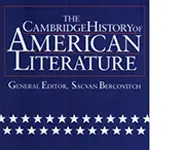
The contributors to this volume discuss the extraordinary literary achievement of nineteenth century American poetry in its social and cultural contexts. Key contributions explore the early Federalist poets; the achievements of Longfellow and Whittier; and the distinctive lyric forms developed by Emerson and the Transcendentalists.

Late in his career Thomas Gainsborough became preoccupied with the theme of the cottage door, and he created a group of paintings and drawings that show rustic figures clustered around the open door of a cottage set in a deeply wooded landscape. Often seen as exemplars of the rural idyll, these works were among the first landscape paintings to reflect the eighteenth-century aesthetic of sensibility.
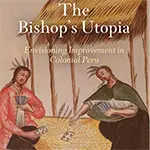
Based on intensive archival research in Peru, Spain, and Colombia and the unique visual data of more than a thousand extraordinary watercolors, The Bishop’s Utopia recreates the intellectual, cultural, and political universe of the Spanish Atlantic world in the late 18th century.
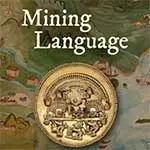
Mineral wealth from the Americas underwrote and undergirded European colonization of the New World. Building upon works that have narrated this global history of American mining in economic and labor terms, Mining Language is the first book-length study of the technical and scientific vocabularies that miners developed in the sixteenth and seventeenth centuries as they engaged with metallic materials.
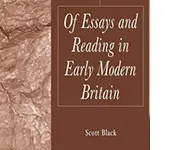
Of Essays and Reading in Early Modern Britain traces the co-evolution of the essay and the mode of literacy it enabled. Focusing on the interactive processes of reading captured by the form, Of Essays offers a new approach to early modern textuality
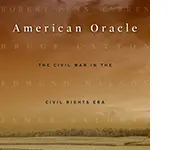
David Blight takes his readers back to the centennial celebration to determine how Americans then made sense of the suffering, loss, and liberation that had wracked the United States a century earlier. Amid cold war politics and civil rights protest, four of America's most incisive writers explored the gulf between remembrance and reality.
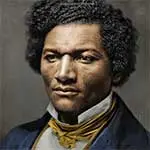
In this remarkable biography, David Blight has drawn on new information held in a private collection that few other historian have consulted, as well as recently discovered issues of Frederick Douglass's newspapers. Winner of the 2019 Pulitzer Prize in History.
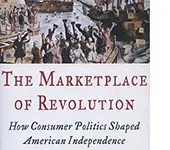
The Marketplace of Revolution offers a boldly innovative interpretation of the mobilization of ordinary Americans on the eve of independence. Breen explores how colonists who came from very different ethnic and religious backgrounds managed to overcome difference and create a common cause capable of galvanizing resistance.

Written in memory of Christopher W. Brooks, this collection of essays by prominent historians examines and builds on the scholarly legacy of the leading historian of early modern English law, society and politics.
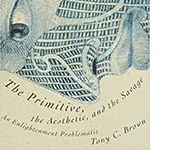
Tony C. Brown examines "the inescapable yet infinitely troubling figure of the not-quite-nothing" in Enlightenment attempts to think about the aesthetic and the savage. The various texts Brown considers—including the writings of Addison, Rousseau, Kant, and Defoe—turn to exotic figures in order to delimit the aesthetic, and to aesthetics in order to comprehend the savage.

The Education of Jane Addams traces, with unprecedented care, Addams's three-decade journey from a privileged prairie girlhood through her years as the competent spinster daughter in a demanding family after her father's death to her early seasoning on the Chicago reform scene.

From the pencil to the puppet to the drone—the humanities and the social sciences continue to ride a wave of interest in material culture and the world of things. How should we understand the force and figure of that wave as it shapes different disciplines? Other Things explores this question by considering a wide assortment of objects—from beach glass to cell phones, sneakers to skyscrapers—that have fascinated a range of writers and artists, including Virginia Woolf, Man Ray, Spike Lee, and Don DeLillo.
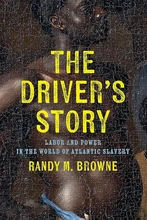
The story of the driver is the story of Atlantic slavery. Starting in the seventeenth-century Caribbean, enslavers developed the driving system to solve their fundamental problem: how to extract labor from captive workers who had every reason to resist. In this system, enslaved Black drivers were tasked with supervising and punishing other enslaved laborers. In The Driver’s Story, Randy M. Browne illuminates the predicament and harrowing struggles of these men—and sometimes women—at the heart of the plantation world.
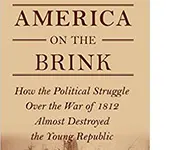
Many people would be surprised to learn that the struggle between Thomas Jefferson's Republican Party and Alexander Hamilton's Federalist Party defined--and jeopardized--the political life of the early American republic. America on the Brink looks at why the Federalists, who worked so hard to consolidate the federal government before 1800, went to great lengths to subvert it after Jefferson's election.
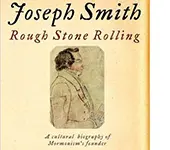
Founder of the largest indigenous Christian church in American history, Joseph Smith published the 584-page Book of Mormon when he was twenty-three and went on to organize a church, found cities, and attract thousands of followers before his violent death at age thirty-eight. Richard Bushman, an esteemed cultural historian and a practicing Mormon, moves beyond the popular stereotype of Smith as a colorful fraud to explore his personality, his relationships with others, and how he received revelations.
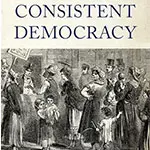
Examines how discussions about self-government and the so-called woman question developed in published opinion from the 1830s through the 1890s. Ranging beyond the organized women's rights movement, it places in conversation travel writers and domestic advice gurus, activists and educators, novelists and journalists, as well as countless others who explored contested aspects of democratic womanhood.
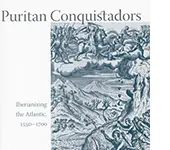
The book demonstrates that a wider Pan-American perspective can upset the most cherished national narratives of the United States, for it maintains that the Puritan colonization of New England was as much a chivalric, crusading act of Reconquista (against the Devil) as was the Spanish conquest.
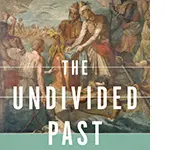
Investigating the six most salient categories of human identity, difference, and confrontation—religion, nation, class, gender, race, and civilization—David Cannadine questions just how determinative each of them has really been.

The career of John Charles Frémont (1813–90) ties together the full breadth of American expansionism from its eighteenth-century origins through its culmination in the Gilded Age. Tom Chaffin's biography demonstrates Frémont's vital importance to the history of American empire, and illuminates his role in shattering long-held myths about the ecology and habitability of the American West.
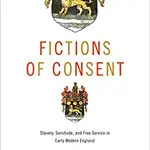
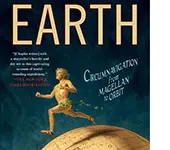
With illustrations and maps, a witty and erudite account of the history of circumnavigation and how it has influenced the way we think about the Earth and ourselves. In the first complete account, Joyce Chaplin tells of the outrageous ambitions that inspired men and women to take on the whole planet.

Largely based on the chance survival of a rich and previously unexploited archive of Henry Hastings, fifth earl of Huntingdon and Lord Lieutenant of Liecestershire, this book affords an in-depth look at early Stuart government and politics different than any hitherto presented.
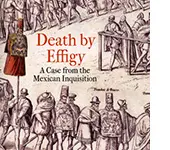
Drawing on inquisitorial papers from the Mexican Inquisition's archive, Luis R. Corteguera weaves a rich narrative that leads readers into a world vastly different from our own, one in which symbols were as powerful as the sword.
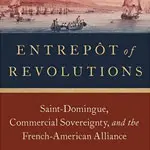
The Age of Revolutions has been celebrated for the momentous transition from absolute monarchies to representative governments and the creation of nation-states in the Atlantic world. Much less recognized than the spread of democratic ideals was the period's growing traffic of goods, capital, and people across imperial borders and reforming states' attempts to control this mobility.

Reveals the incredible richness and complexity of ethical thought about war in the three millennia preceding the Greco-Roman period, establishing the extent to which ancient just war thought prefigured much of what we now consider to be the building blocks of the Western just war tradition.
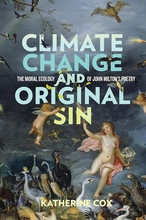
Focusing on the most recent epoch in which belief in an animate environment still widely prevailed, Climate Change and Original Sin argues that an ecologically inflected moral system assumed that humanity bore responsibility for climate corruption and volatility.

Rachel Crawford examines the intriguing, often problematic relationship between poetry and landscape in eighteenth and early-nineteenth-century Britain. She discusses the highly contested parliamentary enclosure movement which closed off the last of England's open fields between 1760 and 1815.

England on Edge deals with the collapse of the government of Charles I, the disintegration of the Church of England, and the accompanying cultural panic that led to civil war. Focused on the years 1640 to 1642, it examines stresses and fractures in social, political, and religious culture, and the emergence of an unrestrained popular press.
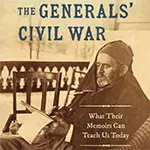
In December 1885, under the watchful eye of Mark Twain, the publishing firm of Charles L. Webster and Company released the first volume of the Personal Memoirs of Ulysses S. Grant. With a second volume published in March 1886, Grant's memoirs became a popular sensation. Seeking to capitalize on Grant’s success and interest in earlier reminiscences by Joseph E. Johnston, William T. Sherman, and Richard Taylor, other Civil War generals such as George B. McClellan and Philip H. Sheridan soon followed suit.

In this insightful history, James Davey tells the story of Britain’s Royal Navy across the turbulent 1790s. As resistance and rebellion swept through the fleets, the navy itself became a political battleground. This was a conflict fought for principles as well as power. Sailors organized riots, strikes, petitions, and mutinies to achieve their goals. These shocking events dominated public discussion, prompting cynical—and sometimes brutal—responses from the government.
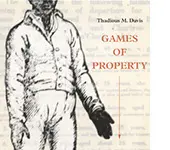
In Games of Property, distinguished critic Thadious M. Davis provides a dazzling new interpretation of William Faulkner's Go Down, Moses. Davis argues that in its unrelenting attention to issues related to the ownership of land and people, Go Down, Moses ranks among Faulkner's finest and most accomplished works.

Loving Dr. Johnson uses the enormous popularity of Johnson to understand a singular case of author love and to reflect upon what the love of authors has to do with the love of literature. Helen Deutsch's work is driven by several impulses, among them her affection for both Johnson's work and Boswell's biography of him, and her own distance from the largely male tradition of Johnsonian criticism—a tradition to which she remains indebted and to which Loving Dr. Johnson is ultimately an homage.
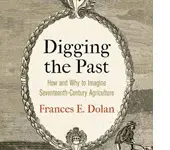
Building on and connecting histories of food and work, literary criticism of the pastoral and georgic, histories of elite and vernacular science, and histories of reading and writing practices, among other areas of inquiry, Digging the Past offers fine-grained case studies of projects heralded as innovations both in the seventeenth century and in our own time.
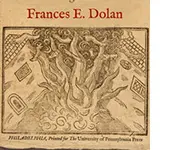
Dolan connects early modern debates about textual evidence to recent discussions of the value of seventeenth-century texts as historical evidence. Then as now, she contends, literary techniques of analysis have proven central to staking and assessing truth claims. She addresses the kinds of texts that circulated about three traumatic events—the Gunpowder Plot, witchcraft prosecutions, and the London Fire—and looks at legal depositions, advice literature, and plays as genres of evidence that hover in a space between fact and fiction.
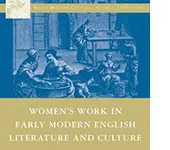
Dowd investigates literature's engagement with the gendered conflicts of early modern England by examining the narratives that seventeenth-century dramatists created to describe the lives of working women.
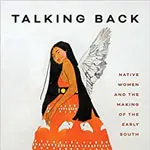
Historian Alejandra Dubcovsky tells a story of war, slavery, loss, remembrance, and the women whose resilience and resistance transformed the colonial South. In exploring their lives she rewrites early American history, challenging the established male-centered narrative.
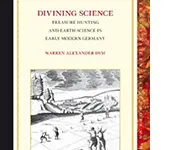
The study of German mining and metallurgy has focused overwhelmingly on labor, capitalism, and progressive engineering and earth science. This book addresses prospecting practices and mining culture. Using the divining, or dowsing rod as a means of exposing miner beliefs, it argues that a robust vernacular science preceded institutionalized geology in Saxony, and that the Freiberg Mining Academy (f.1765) became a site for the synthesis of tradition and new science.
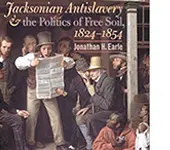
Taking our understanding of political antislavery into largely unexplored terrain, Jonathan H. Earle counters conventional wisdom and standard historical interpretations that view the ascendance of free-soil ideas within the antislavery movement as an explicit retreat from the goals of emancipation or even as an essentially proslavery ideology.